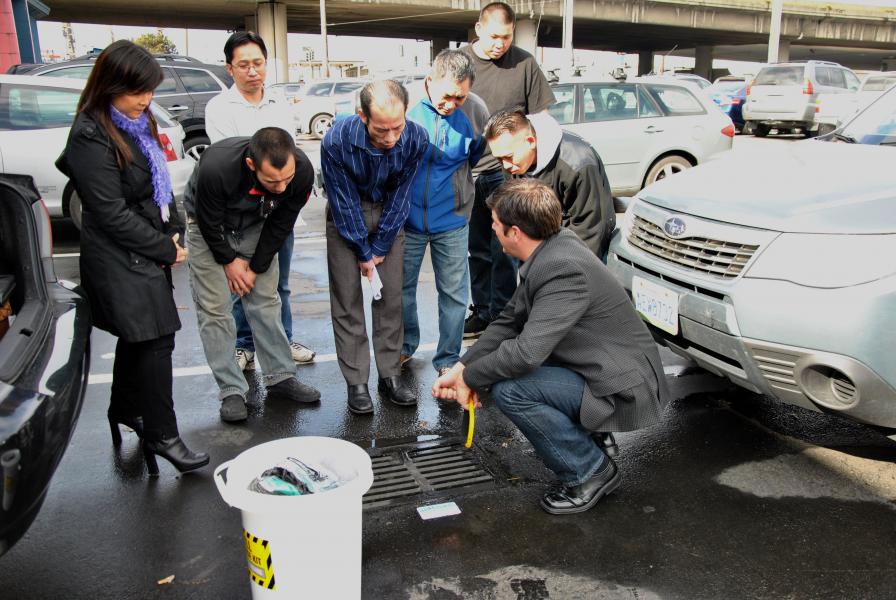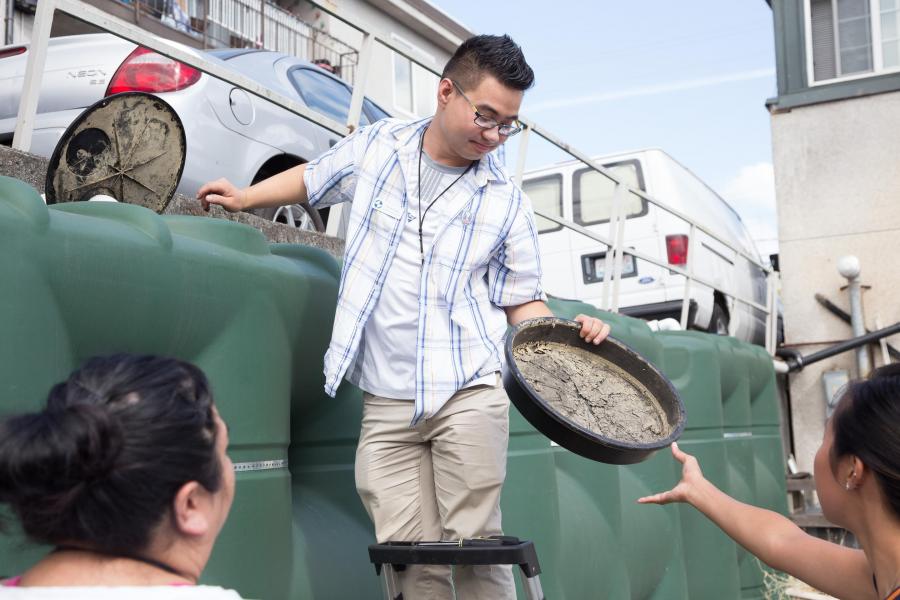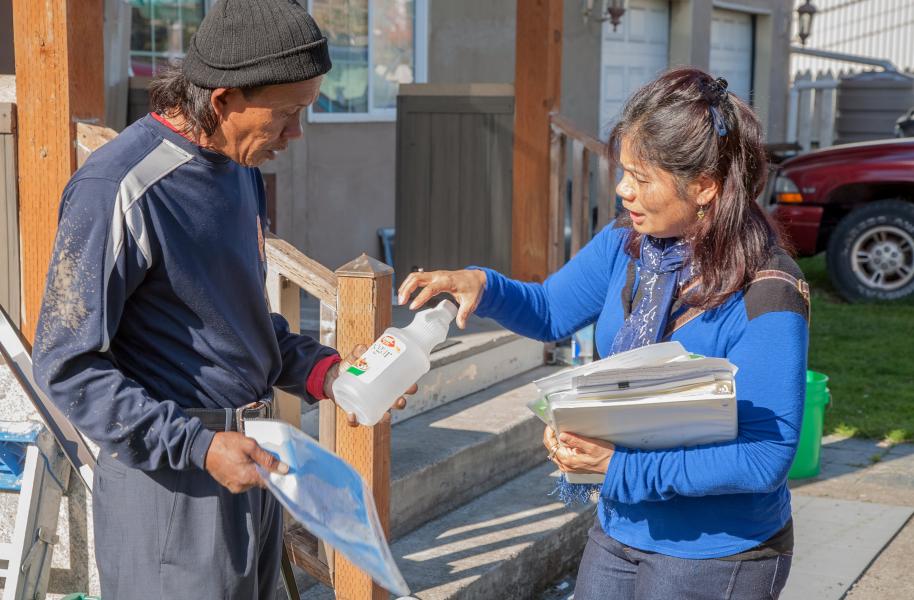When Young’s Restaurant, a minority-owned business in White Center, became the first to take advantage of King County’s RainWise program, local environmental nonprofit Environmental Coalition of South Seattle (ECOSS) saw an opportunity to engage the whole community.
RainWise offers community members and local businesses rebates for installation of rain gardens and cisterns that help combat stormwater pollution and trains contractors to install that infrastructure. Because the program has been operated primarily in English, multicultural communities were unaware of the program.
ECOSS works with diverse businesses and communities through multilingual environmental outreach and education to increase awareness of programs like RainWise.

Will Chen, ECOSS communications manager, said the nonprofit’s work focuses on meeting these businesses and communities in their local environment. To engage the community on stormwater pollution and green stormwater infrastructure, ECOSS planned events around the installation of the three cisterns at Young’s Restaurant so the whole community could benefit.
ECOSS is a recipient of a 2018 Port of Seattle Environmental Excellence Award in the Education and Outreach category. Along with training residents to reduce stormwater pollution, ECOSS also educates community members and business owners about food waste prevention, composting, and recycling; avoiding toxic household products, hazardous chemicals and using nontoxic, environmentally-friendly alternatives; and organizing volunteer programs, habitat restoration events, and other outdoor environmental stewardship outings.
“All of our work is centered around language, centered around culture, and centered around where the people that are most disproportionally impacted by environmental injustices are — that environmental justice guides our work,” Chen said. “So not only is Young’s Restaurant able to use reclaimed water to help with their gardens, this is now also a community center for others to see and be inspired to install their own cistern or rain garden.”

Chen said a lot of environmental programs naturally involve people who already know a lot about the environment, but also can reach immigrants, refugees, and people from low-income communities who want to help the environment too.
“They want to be a part of that conversation, but they are not always brought to the table,” he said. “Historically these are the communities that have been underserved; their voices have not been included, and ECOSS fulfills that bridge.”
ECOSS bridges the gaps between government, industry, and surrounding communities so that everyone can participate in the environmental movement that is occurring in Seattle.
Chen said the ECOSS programs have a very immediate impact on the communities it serves.
“A lot of communities of color care about the environment and I think one of the really amazing things we hear a lot is ‘I didn’t know that these chemicals that I’m using are really hazardous,’ ‘I didn’t know that the water that comes out of the tap is drinkable, is clean,’ and ‘I didn’t know that I can just walk to a nearby park that I spend a lot of time in and restore some of the habitat’,” he said.

ECOSS helps these communities feel connected to the environment and find opportunities they are already interested in, but because of lifestyle barriers, language barriers, and geographic barriers, they previously haven’t had access.
Chen said the award from the Port of Seattle helps demonstrate that ECOSS’ education and outreach model is valuable.
“This also means a lot for the community that we serve; it means that we can provide a voice, a platform for these communities that is being recognized,” he said. “More than ever, Seattle as a whole is understanding that advancing an environmental movement is not just for the people who are already benefiting — it’s for everyone. No matter what ethnicity or socioeconomic status or where you are in Seattle, the environment is for everyone; this award means that we’re heading towards that.”






